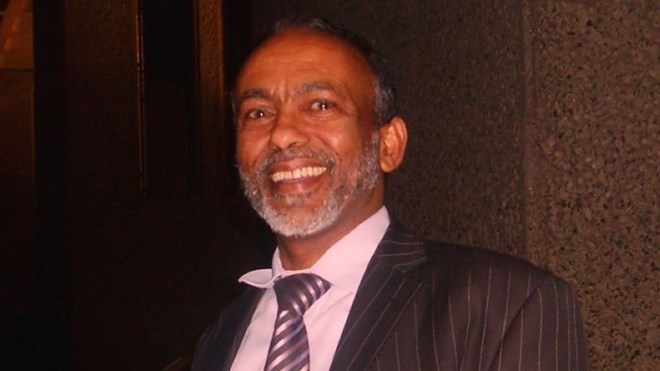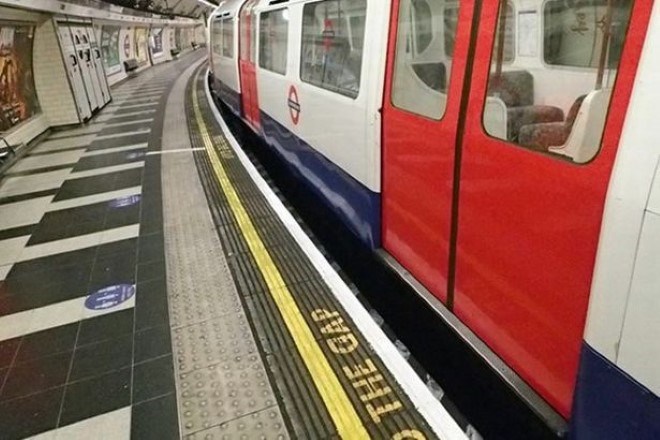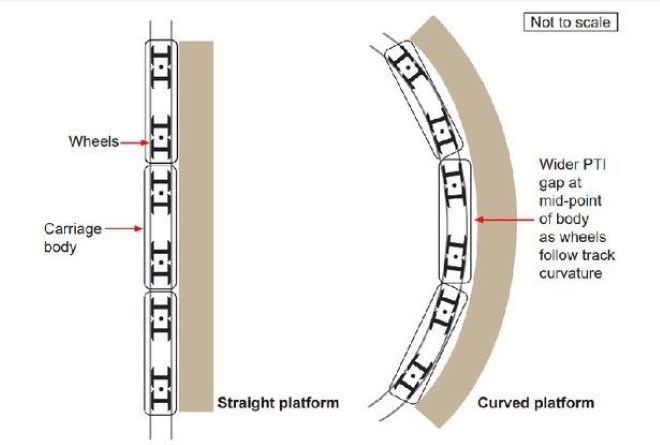
Thursday September 22, 2022
By Callum CuddefordSam Elliott-Gibbs
Gama Mohamed Warsame attempted to escape by waving his hands for 20 seconds after falling between platform and train at Waterloo Station two years ago as the inquest into his death takes place

The much-delayed inquest into the death of Jama Mohamed Warsame has begun (Image: MYLONDON/BPM MEDIA)
The devastated family of a war hero crushed death by two London Underground trains have demanded Transport for London now 'take responsibility'.
Father-of-ten Gama Mohamed Warsame stumbled and fell between the platform and the train at Waterloo Station in May 2020.
The 59-year-old slipped between the gap as he attempted to board the Bakerloo line northbound service before being dragged 16 metres by the first train and crushed by the second.
The inquest into the death of Mr Warsame, who fought in the Somalian civil war and was a 'hero to his nation' according to his family, is now taking place, MyLondon report.
A post-mortem examination revealed that he died of 'catastrophic trauma' to his brain, heart, and lungs.
In a statement read out at the Inner South London Coroner's Court, daughter Samara Mohamed praised her 'selfless' dad who was 'a hero to his country', but slammed TfL saying 'sadly in the last moments of his life, he needed help and no-one was there to help him'.
She added: "We believe our father's death happened for some other reason than just an accident and changes need to happen to help someone else.
After all, he was a remarkable person and sometimes, something remarkable needs to happen to change the world. We as a family want TfL and London Underground to take responsibility to increase awareness of what happens on their platforms."
An investigation by the Rail Accident Investigation Branch already found the operations monitors - which let drivers see issues on the platform - were 'unsuitable for identifying a person fallen in the gap' after investigators did a simulation test with a mannequin.Lead investigator Richard Brown admitted: "What the driver could see at the time is not recorded, so we don't actually know."
The court was shown stills of the simulation run which showed how difficult it was to see a passenger on the platform or in the gap. Mr Brown explained the cameras did not meet the 1997 or 2000 'requirement for size of a person appearing on a monitor'. Though he did note the drivers were in good health, well rested, and had been tested for their eyesight.

He fell between the platform and train at Waterloo Station as he attempted to join the Bakerloo line ( Image: MYLONDON/BPM MEDIA)
The court heard how the curvature of the platform at Waterloo led to the gap Mr Warsame fell down, which at its smallest was 264mm wide.
The depth of the fall was at most 580mm - thigh level according to Mr Brown, but he suggested Mr Warsame fell in a 'prone position' and may have been unable to move his legs and lever himself out. Senior coroner Andrew Harrison still seemed baffled, stating: "It does seem surprising that someone could actually fit in that gap?"
Mr Brown also revealed the platform to be noisy. "You had to be quite close to people to have a normal conversation," he continued. "You needed to shout... If anyone was more than a carriage or two distance away they would struggle to hear you." The CCTV on the platform did not record sound so it remains unclear if Mr Warsame called for help.
The court heard how Mr Warsame fought in the Somalian civil war, during which he was tortured and had shrapnel injuries to his legs. He fled the country and was granted asylum in the UK where he had lived for 30 years at the time of his death. His war efforts left him with undiagnosed PTSD which caused him to self-medicate with alcohol, according to his family.
Samara told the court he did not have a 'drinking problem', but it was 'a social thing, 'it was for the PTSD he had'. A report from Mr Warsame's GP revealed he had suffered from alcohol dependence until 2009, after which he came to the doctor with alcohol problems and was referred to dependence charity RESET.
In a report, pathologist Dr Simon Poole said: "Very high levels of alcohol in his blood and urine might have affected his co-ordination and balance and made him predisposed to falling." But speaking to the court, toxicologist Dr Susan Paterson went a step further to say the alcohol levels 'probably would have' made him 'predisposed to falling'.
The jury was shown a diagram to explain why a large gap appears on a curved platform ( Image: MYLONDON/BPM MEDIA)
Mr Warsame's blood alcohol levels were 300mg per litre which 'is normally associated with a coma and possibly death'. Dr Paterson explained he may have built up a tolerance and responded to questions from the family's lawyer on how this might have influenced his fall.
She said: "This is an extremely high level that would have affected anyone."
In a tribute to her late dad, daughter Samara said: "He was a son, brother, husband, father, grandfather, and a hero to his country. Because as a family we will never be able to come to explain what our father meant to his family and loved ones. Nothing we ever say will be able to do any justice to what he meant to us or others.
"He was a remarkable person. He was the most selfless, generous, intelligent, all around great person you have ever known. He was easy to love and easy to connect with. My father was a selfless person, and he also put himself before others. He was honourable, he was kind, he was so loving and gentle. He worked hard in everything he did. He told us to always be truthful.
"He was a man of his word and always put others before himself. He was a hero to us and his family, he was also a hero of his nation. He was a brave man.
"He was nicknamed 'Lion' - imagine being nicknamed a lion at the age of 10. He showed mercy and love to all living beings, he also saw good in people, he never used to hold a grudge. He was the definition of a strong person and survivor."
The inquest continues and is due to conclude in late September or early October.